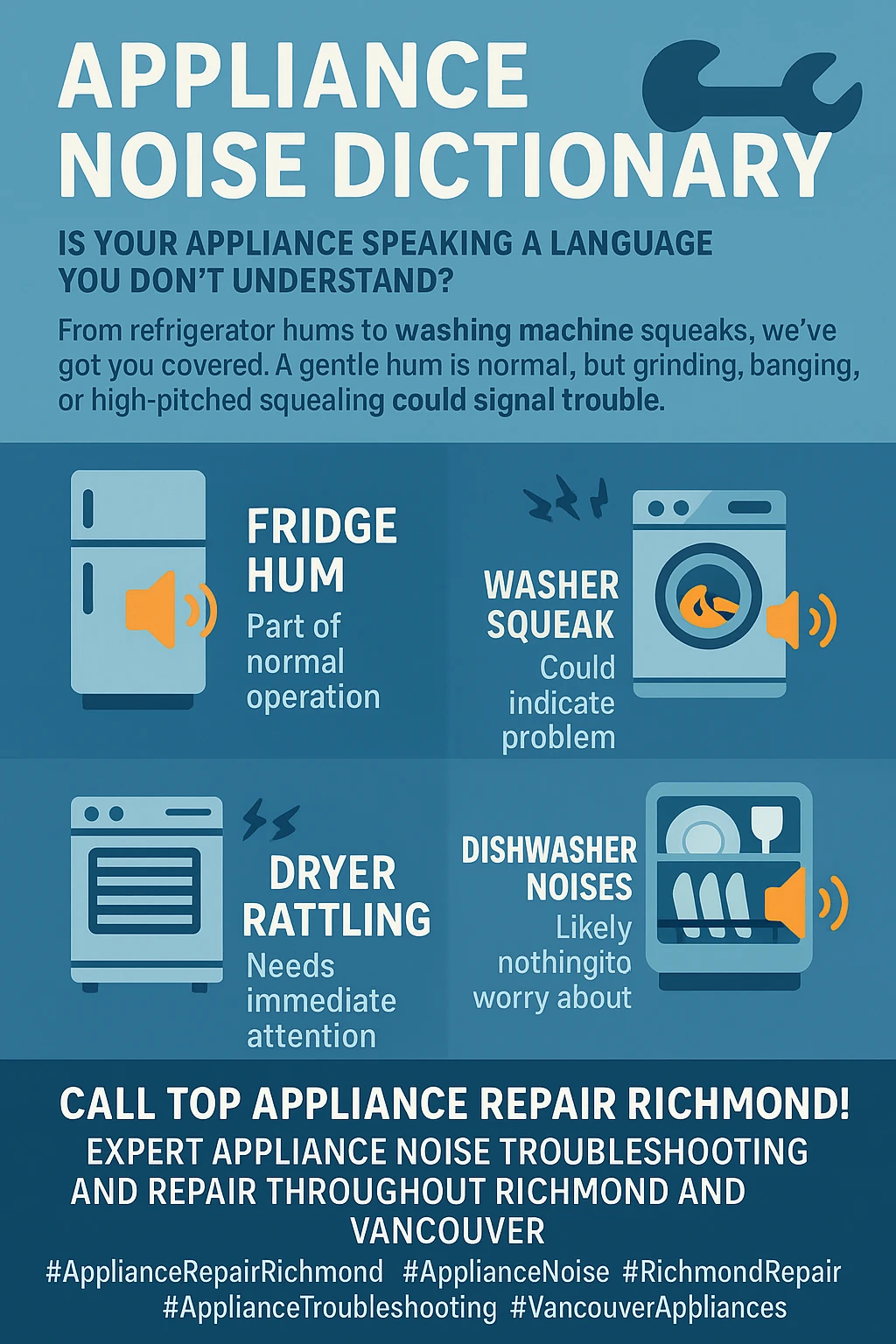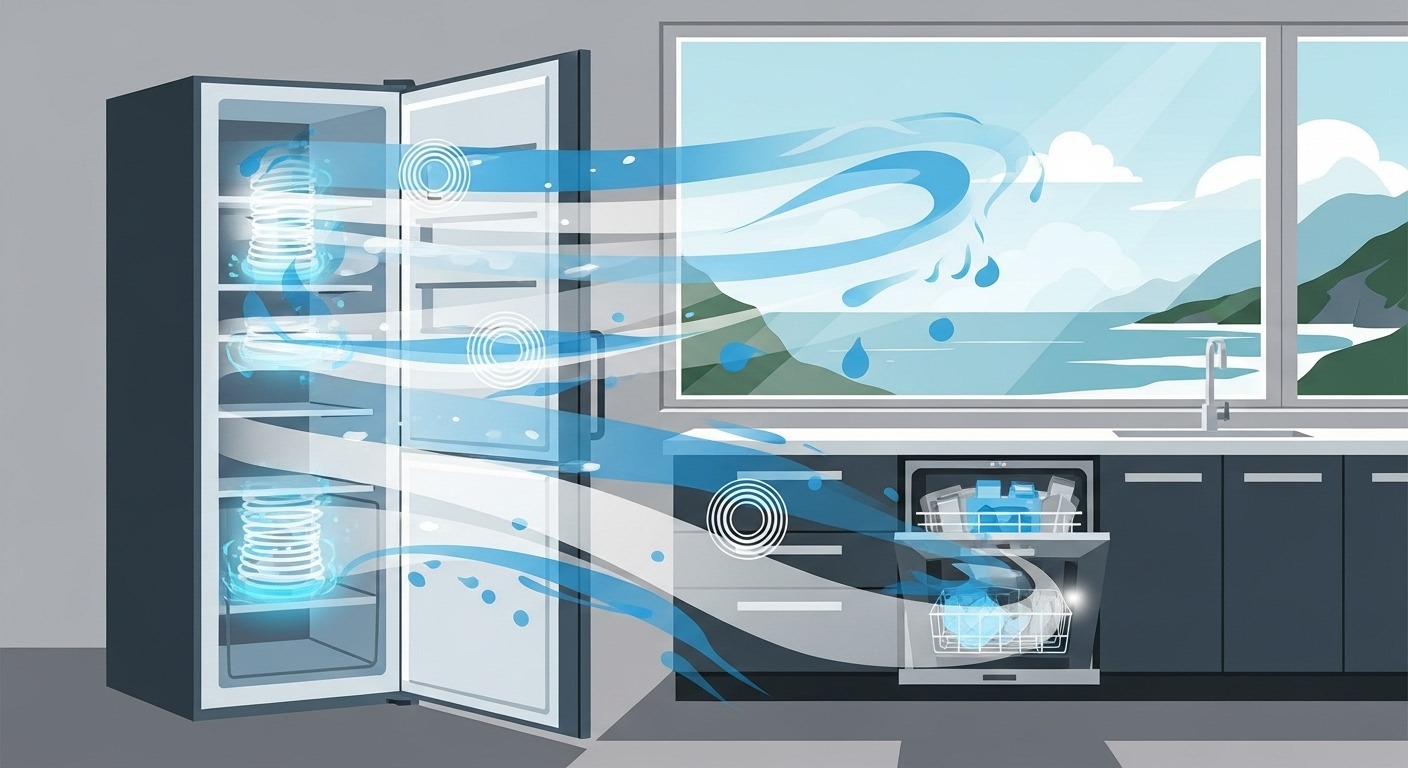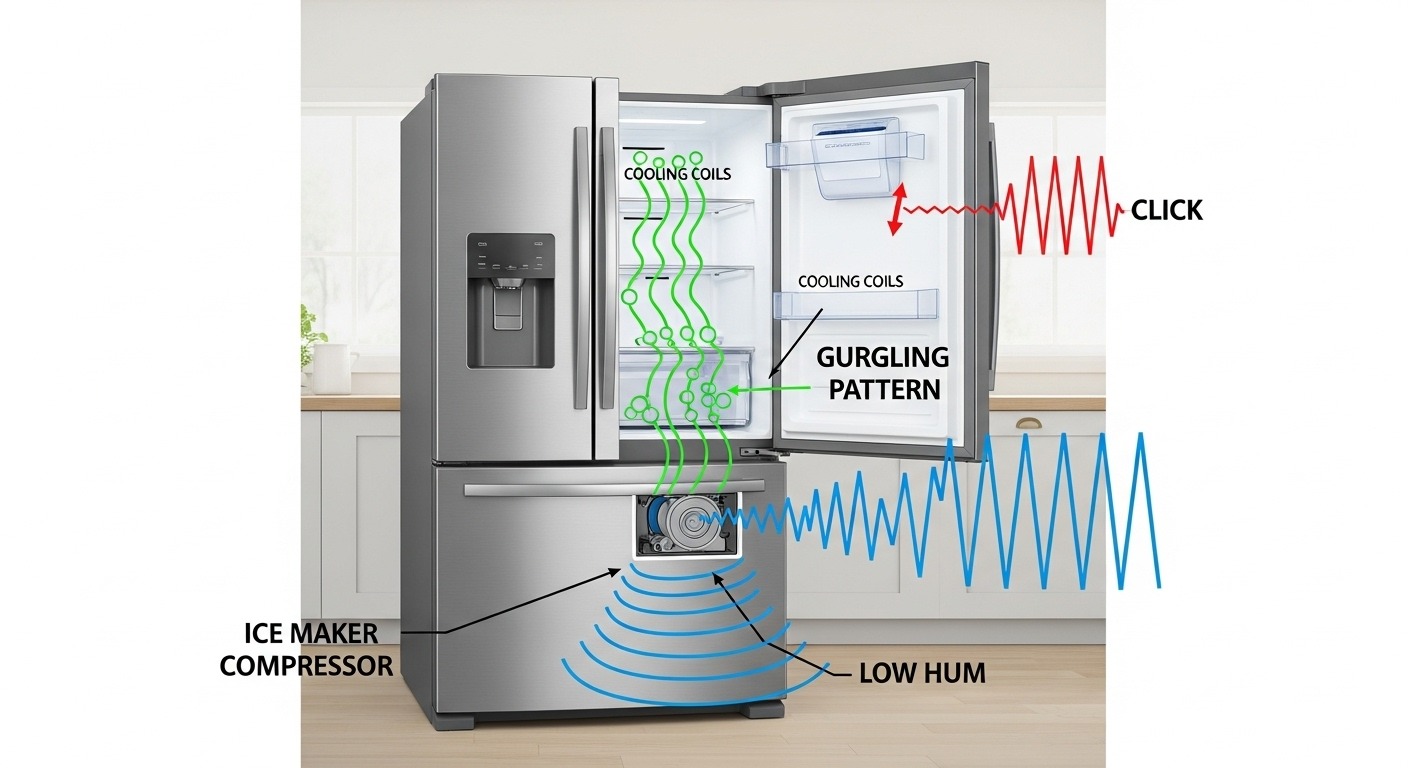Richmond Appliance Noise Dictionary: What Every Sound Your Appliances Make Really Means (And When to Worry)
Ever wondered what that mysterious humming from your fridge at 2 AM really means, or whether that new clicking sound from your dishwasher signals an expensive repair bill heading your way? Our complete Richmond appliance noise dictionary breaks down every sound your household heroes make, helping you distinguish between “totally normal” and “call a pro ASAP” so you can sleep soundly and keep your wallet happy.
Picture this: you’re enjoying a quiet Sunday morning in your Richmond home when suddenly your washing machine starts making a sound that can only be described as a dying walrus having an argument with a jackhammer. Your heart sinks as you imagine dollar signs floating away, but here’s the thing – that terrifying sound might just be telling you something as simple as “hey, your load is unbalanced.” The coastal environment here in Richmond creates unique challenges for our appliances, with humidity from the Fraser River and salt air from our proximity to the Pacific creating conditions that can make normal sounds seem more dramatic and cause components to wear differently than they would in drier climates.
Understanding appliance noises isn’t just about preventing panic attacks during late-night laundry sessions. Richmond’s unique position in coastal BC means our appliances work harder to combat humidity, deal with temperature fluctuations, and fight against salt air that can accelerate wear patterns in ways that homeowners in Calgary or Winnipeg never experience. When you can decode what your appliances are actually trying to tell you, you transform from a helpless homeowner into an appliance whisperer who can catch problems early, save money on repairs, and avoid those dreaded emergency service calls during the peak summer months when every repair tech in the Lower Mainland is booked solid.
The reality is that most appliance sounds fall into predictable categories that, once you understand them, become as readable as your morning coffee routine. Some sounds indicate normal operation that might seem alarming but are actually signs your appliances are adapting to environmental conditions. Others represent early warning systems that give you precious time to address minor issues before they escalate into major problems. And yes, some sounds do mean “turn me off right now and call for help” – but knowing the difference can save you hundreds of dollars in unnecessary emergency calls and give you the confidence to handle your home like the capable adult you definitely are most of the time.
Key Outtakes:
- Richmond’s coastal humidity and salt air create unique appliance stress patterns that generate distinct sound signatures different from inland locations
- Most “alarming” appliance noises are actually normal operational sounds that seem more dramatic due to our region’s environmental conditions
- Early identification of problem sounds can prevent minor issues from becoming major repairs, especially important during peak summer service demands
- Seasonal noise pattern changes are normal in our climate and shouldn’t be mistaken for equipment problems
- Understanding the difference between “call immediately” and “schedule maintenance” sounds can save hundreds in unnecessary emergency service calls

Why Your Richmond Appliances Sound Different

Living in Richmond means your appliances are basically athletes competing in extreme conditions every single day. The combination of Fraser River humidity, Pacific coastal moisture, and those dramatic temperature swings we get between seasons creates an environment that pushes household equipment harder than it would work in most other places. This isn’t your appliances being dramatic – it’s them adapting to legitimate environmental challenges that affect everything from motor operation to electrical component performance.
The science behind why Richmond appliances sound different starts with understanding how moisture affects mechanical systems. When humidity levels rise, which happens frequently here, metal components expand slightly, electrical connections can develop resistance, and moving parts may require more energy to operate smoothly. Your refrigerator compressor might run longer cycles to combat the extra moisture trying to infiltrate the system, creating more pronounced humming sounds than you’d hear in a drier climate. Similarly, your dryer has to work overtime to remove moisture from clothes when the ambient air already contains significant humidity, leading to longer cycle times and different operational sound patterns.
Salt air plays a sneaky but significant role in appliance noise generation that many Richmond homeowners don’t realize. Even though we’re not directly oceanfront, our proximity to the Fraser River and various waterways means salt particles can infiltrate our homes and gradually affect appliance components. Over time, this can cause subtle corrosion that changes how parts fit together, potentially creating new sounds or altering familiar ones. A washing machine pump that’s been exposed to salt air for several years might develop a slightly different acoustic signature as seals and metal components experience gradual changes that wouldn’t occur in inland locations.
Temperature cycling represents another unique challenge for Richmond appliances that directly impacts the sounds they make. Our mild winters followed by potentially hot summers create expansion and contraction cycles that can gradually loosen mounting hardware, shift components, and create new contact points that generate different sounds. This is completely normal, but it means that appliance sounds can evolve over time in ways that might surprise homeowners who expect consistent acoustic patterns. Understanding this helps distinguish between normal environmental adaptation and actual mechanical problems requiring attention.
The cumulative effect of these environmental factors means Richmond appliances often work harder and sound more active than similar units in more stable climates. This increased activity isn’t necessarily problematic, but it does mean that homeowners need to understand what represents normal adaptation versus concerning changes. When your dishwasher seems to run its exhaust fan more frequently, or your refrigerator appears to cycle more often, these might be appropriate responses to environmental conditions rather than signs of equipment problems requiring expensive repairs.
Refrigerator and Freezer Sound Translation

Now that we understand why Richmond appliances face unique challenges, let’s dive into the most acoustically complex appliance in your home – the refrigerator. This hardworking hero operates 24/7, constantly adjusting to temperature changes, humidity levels, and the chaos of daily life, which means it produces an ever-changing symphony of sounds that can range from barely noticeable to “is that normal or should I be worried?” The key to refrigerator sound interpretation lies in understanding that these units have multiple systems working together, each contributing to the overall acoustic environment.
Your refrigerator’s normal sound palette includes several predictable categories that indicate healthy operation. The gentle humming you hear periodically comes from the compressor motor, which is essentially the heart of your cooling system, working to circulate refrigerant through the coils and maintain proper temperatures. This sound typically varies in intensity based on how hard the system is working – opening the door frequently, adding warm food, or dealing with Richmond’s humid summer days will make the compressor work harder and sound more pronounced. The soft buzzing that occurs occasionally usually indicates electrical components like solenoid valves activating, ice maker operation, or defrost timers cycling on and off.
Gurgling and trickling sounds often alarm homeowners who imagine water leaking somewhere, but these are actually normal refrigerant circulation sounds as liquid and gas move through the cooling system’s tubes and coils. Think of it like the digestive sounds your stomach makes – weird but totally normal. Brief clicking sounds typically indicate the defrost timer cycling, temperature controls activating, or the ice maker going through its operational sequence. These sounds may be more frequent in Richmond homes where humidity requires more active system management to maintain optimal internal conditions.
The concerning refrigerator sounds that warrant attention include loud, continuous buzzing that suggests the compressor is straining, often caused by dirty condenser coils that can’t effectively dissipate heat in our humid environment. Professional technicians report that coastal humidity can accelerate dirt buildup on condenser coils, making this a more common issue in Richmond than in drier locations. Loud banging or thumping sounds usually indicate loose components, particularly the drain pan underneath the unit, which can become dislodged more frequently here due to vibration from compressors working harder against environmental conditions.
Grinding noises represent serious problems that require immediate attention, typically indicating compressor bearing failure or evaporator fan motor deterioration. In Richmond’s environment, these problems can develop more rapidly due to moisture infiltration and salt air effects on moving parts. Persistent loud humming, especially accompanied by inadequate cooling, often indicates system overwork due to environmental factors or component problems that professional diagnosis can identify and resolve before complete system failure occurs.
Ice Maker Acoustics and Humidity Challenges

Ice makers deserve special mention in Richmond homes because they face particular challenges from our humid environment that can create unique sound patterns. Normal ice maker operation includes several distinct phases, each with characteristic sounds that indicate proper function. The initial water fill creates flowing sounds as the valve opens and water enters the mold, followed by the quiet operation of the freezing cycle, then the harvest cycle that produces clicking, grinding, and dropping sounds as ice cubes are formed and released into the storage bin.
Richmond’s humidity can significantly impact ice maker performance and sound generation. Higher moisture levels in the air can cause ice makers to work harder to achieve proper freezing, potentially extending cycle times and creating more pronounced operational sounds
